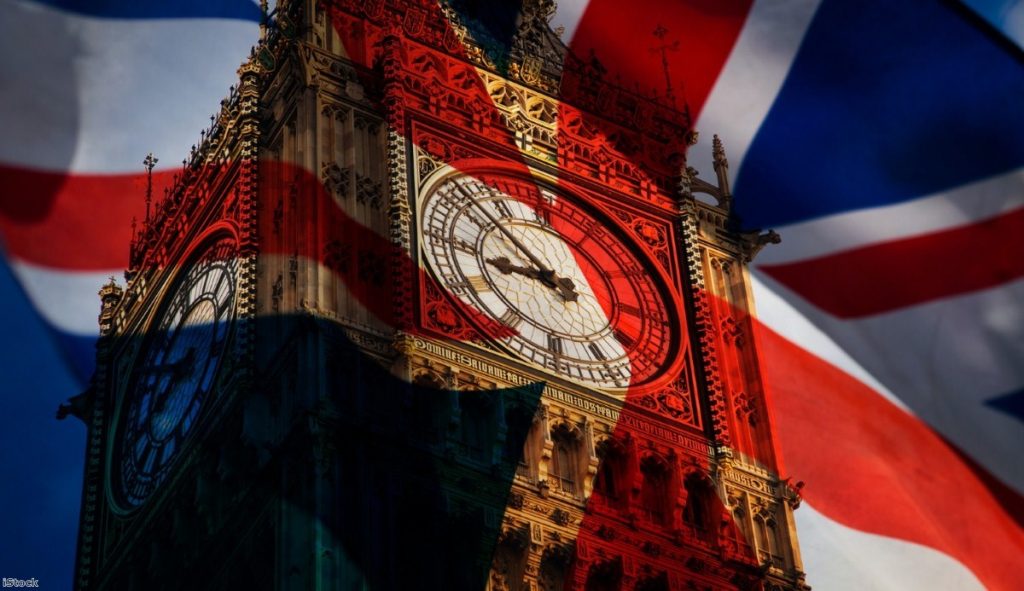Since the first-phase agreement, the prospect of no-deal has faded into the mist. It showed that the big blockages – UK anger over the budget contribution, demands on citizens' rights – could be dealt with, while others, like the Irish border, could potentially be fudged by mutual agreement. Analysts who previously thought a no-deal outcome was 50/50, or maybe even more likely than that, started to presume we'd get one.
But that optimism may have been misplaced. Peer beneath the surface of the debate and there are plenty of forces still pushing for no-deal. The apocalypse cult has not gone away. Polling by UK in a Changing Europe this morning found that 74% of Tory MPs think it is unacceptable for free movement to continue during transition, while 63% oppose European Court of Justice jurisdiction in the UK during this period. That's a problem, because these will certainly be conditions. And any vote against transition would bring down everything else in the withdrawal agreement along with it.
There'll be pressure on May from two sources in particular: the European Research Group and the DUP. The former is a party-within-a-party – coordinated, absurdly enough, by a secretive WhatsApp group – which maintains meaningful discipline among hard Brexiters on the Tory benches. Its new boss is Jacob Rees-Mogg and he is already laying down red lines over transition which might make it impossible to achieve. He told Politico recently that keeping free movement over transition "is not government policy and that it "ought to end in March 2019 not two years later". Meanwhile, DUP Brexit spokesman Sammy Wilson said transition under the terms being considered by the May government is "an extension of EU membership for another two years".


The rhetoric is ratcheting up in response to EU demands, which are currently in the shifting, embryonic form of directives – they'll harden into immoveable guidelines in the spring. The EU knows it can basically ask the UK to accept anything for transition and it will have to accept it. There is no chance of the UK building the infrastructure required for customs or regulation in time for March next year. It simply cannot be done. So whatever the EU demands, it'll be that or the cliff-edge. Which overall is a pretty advantageous negotiating position.
Free movement was anyway going to apply over transition. But the EU is likely to further demand that new EU arrivals in the UK become eligible for whatever new residency system the government is creating. That would put May in an impossible position – with implacable EU demands on one hand and Rees-Mogg/the DUP on the other. But even if the EU rejects that idea, Tory instincts seems completely opposed to the deal May is pursuing, which would by definition keep the UK under ECJ jurisdiction and EU rules, including free movement, until at least two years after Brexit.
There are other snags which could undo the agreement. The EU will soon be translating the loose wording of the first-phase deal into a legal text. It is taking a particularly stern approach towards this task since David Davis' unhelpful assertion that the December agreement was just a "statement of intent".
It's not clear what this legal document will look like. The bit on the budget is relatively straightforward, but the passage on the Irish border – especially Section 49 – is a massive political fudge which would probably be impossible to turn into meaningful legal text. And if it is turned into a meaningful legal text, someone somewhere is going to realise that they can't have their cake and eat it and get terribly upset.
As German Brexit coordinator Peter Ptassek tweeted yesterday: We are not there yet. This was then retweeted by Sabine Weyand, deputy chief Brexit negotiator for the Commission.
Friendly reminder: "Sufficient progress" in withdrawal questions meant: We are not there yet. More
work to be done. Many #Brexit left overs will surface when EU-Commission starts drafting
withdrawal agreement, e.g. text on Ireland! Point here is: Legal text has to be clear.— Peter Ptassek (@GermanyonBrexit) January 21, 2018
These two areas of difficulty – the legal transcription of the joint agreement and the terms of transition – do not even include the final part of the puzzle: the framework of the future trade agreement. This is where the real emotional clout of Brexit is contained.
If there is specificity about what is happening in the future, the whole endeavour will explode. If we diverge from EU rules, or fail to sign up to any agreed institutions, a border will go up in Ireland. If it aligns with the EU in a meaningful way, the hard Brexit ranks will be outraged and scream betrayal. The only way to keep the show on the road is to maintain a sense of semantic meaninglessness until after Brexit has actually happened.
All of which means that the death of no-deal Brexit has been rather overstated. It is still a very real possibility.
Ian Dunt is editor of Politics.co.uk and the author of Brexit: What The Hell Happens Now?
The opinions in politics.co.uk's Comment and Analysis section are those of the author and are no reflection of the views of the website or its owners.










